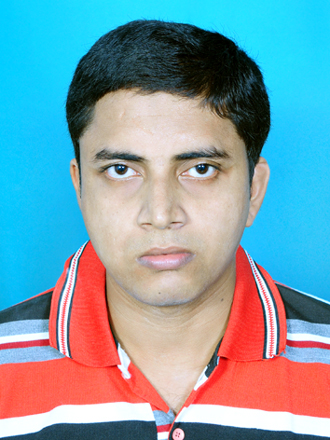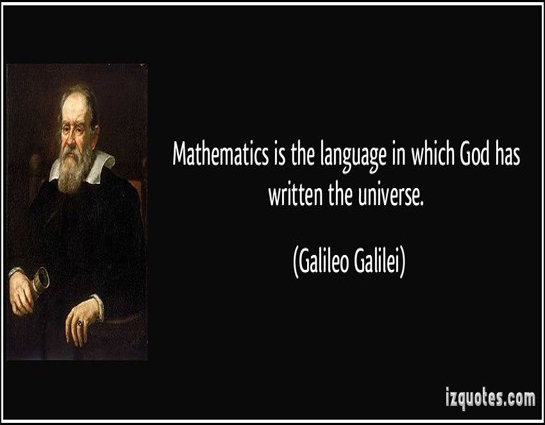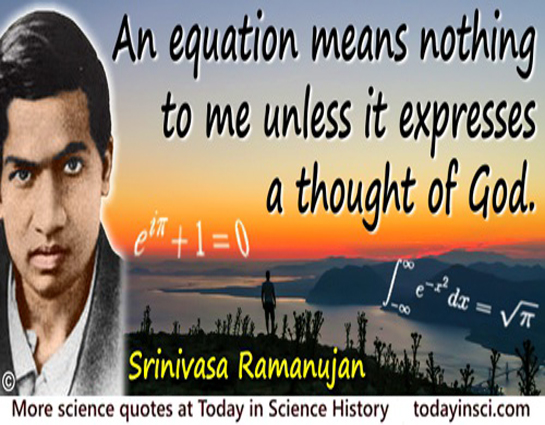
Government General Degree College, Chapra
Affiliated to the University of Kalyani, Accredited by NAAC (1st Cycle) (Grade B)
Approved by UGC under Section 2(f) of UGC Act, 1956
ISO 50001:2018 & ISO 14001:2015 Certified
Department of Mathematics
About Department:
"Mathematics rightly viewed possesses not only truth but supreme beauty." (Bertrand Russell)
The Department of Mathematics started functioning from the year 2016. Students are offered the subject as part of the curriculum under B.Sc General Degree program under the University of Kalyani. The Department aims to nurture students and encourages their inkling towards mathematical sciences so that they can opt a career in it in the future. Further, the scope of mathematics has a wide base in industrial and technological fields as well. At present there are three dedicated faculty members who are extremely dedicated in imparting knowledge to the students and enriching them with all the best possible know-how of the subject as well as it's allied areas of research and development programs. The department boasts of a sufficient number of computers and reference books which are kept in the library that offer ready to help guide for the students. Moreover, students here are motivated to go beyond the prescribed academic syllabus and think deep about the subject and it's possibilities. The faculty members are also actively engaged in seminars, publications and research work in their own areas.
Aims:
The aims of teaching and learning mathematics are to encourage and enable students to:
- Recognize that mathematics permeates the world around us appreciate the usefulness, power and beauty of mathematics.
- Enjoy mathematics and develop patience and persistence when solving problems.
- Understand and be able to use the language, symbols and notation of mathematics.
- Develop mathematical curiosity and use inductive and deductive reasoning when solving problems
- Become confident in using mathematics to analyse and solve problems both in school and in real-life situations.
- Develop the knowledge, skills and attitudes necessary to pursue further studies in mathematics
- Develop abstract, logical and critical thinking and the ability to reflect critically upon their work and the work of others.
- Develop a critical appreciation of the use of information and communication technology in mathematics
- Appreciate the international dimension of mathematics and its multicultural and historical perspectives.
Knowledge and understanding
Knowledge and understanding are fundamental to studying mathematics and form the base from which to explore concepts and develop problem-solving skills. Through knowledge and understanding students develop mathematical reasoning to make deductions and solve problems.
At the end of the course, students should be able to
- Know and demonstrate understanding of the concepts from the five branches of mathematics (number, algebra, geometry and trigonometry, statistics and probability, and discrete mathematics)
- Use appropriate mathematical concepts and skills to solve problems in both familiar and unfamiliar situations including those in real-life contexts
- Select and apply general rules correctly to solve problems including those in real-life contexts.
Investigating patterns
Investigating patterns allows students to experience the excitement and satisfaction of mathematical discovery. Mathematical inquiry encourages students to become risk-takers, inquirers and critical thinkers. The ability to inquire is invaluable in the MYP and contributes to lifelong learning.
Through the use of mathematical investigations, students are given the opportunity to apply mathematical knowledge and problem -solving techniques to investigate a problem, generate and/or analyse information, find relationships and patterns, describe these mathematically as general rules, and justify or prove them.
At the end of the course, when investigating problems, in both theoretical and real-life contexts, student should be able to:
- Select and apply appropriate inquiry and mathematical problem-solving techniques
- Recognize patterns
- Describe patterns as relationships or general rules
- Draw conclusions consistent with findings
- Justify or prove mathematical relationships and general rules.
Communication in mathematics
Mathematics provides a powerful and universal language. Students are expected to use mathematical language appropriately when communicating mathematical ideas, reasoning and findings—both orally and in writing.
At the end of the course, students should be able to communicate mathematical ideas, reasoning and findings by being able to:
- Use appropriate mathematical language (notation, symbols, terminology) in both oral and written explanations
- Use different forms of mathematical representation (formulae, diagrams, tables, charts, graphs and models)
- Move between different forms of representation.
Students are encouraged to choose and use ICT tools as appropriate and, where available, to enhance communication of their mathematical ideas. ICT tools can include graphic display calculators, screenshots, graphing, spreadsheets, databases, and drawing and word-processing software.
Department of mathematics at Government General Degree College Chapra encourages students to reflect upon their findings and problem-solving processes. Students are encouraged to share their thinking with teachers and peers and to examine different problem-solving strategies. Critical reflection in mathematics helps students gain insight into their strengths and weaknesses as learners and to appreciate the value of errors as powerful motivators to enhance learning and understanding.
At the end of the course students should be able to:
- Explain whether their results make sense in the context of the problem
- Explain the importance of their findings
- Justify the degree of accuracy of their results where appropriate
- Suggest improvements to the method when necessary.
Our Objectives:
The main objectives of the B.Sc. (Major) Mathematics Programme are to:
- Inculcate strong interest in learning mathematics.
- Evolve broad and balanced knowledge and understanding of definitions, key concepts, principles and theorems in Mathematics
- Enable learners/students to apply the knowledge and skills acquired by them during the programme to solve specific theoretical and applied problems in mathematics.
- Develop in students the ability to apply relevant tools developed in mathematical theory to handle issues and problems in social and natural sciences.
- Provide students with sufficient knowledge and skills that enable them to undertake further studies in mathematics and related disciplines.
Program Outcomes & Course Outcomes:
Class Routine
Details of the passed out students (2018-23):
| Session | Number of students appeared in the final year | Number of students passed in the final year | Name of the students passed in the final year | Link of the mark sheets of the passed out students |
|---|---|---|---|---|
| 2018-2019 | Nil | Nil | Nil | Nil |
| 2019-2020 | Nil | Nil | Nil | Nil |
| 2020-2021 | Nil | Nil | Nil | Nil |
| 2021-2022 | 1 | 1 | SAHIM RAHAMAN | View |
| 2022-2023 | 3 | 3 | RAFEJA SULTANA TAMANNA BISWAS SORONDIP GHOSH |
View View View |
Question Paper
| Title | Download |
|---|---|
| MODEL QUESTION 1 | Download |
| MODEL QUESTION 2 | Download |
| MODEL QUESTION 3 | Download |
| MODEL QUESTION 4 | Download |
| MODEL QUESTION 5 | Download |
| MODEL QUESTION 6 | Download |
Previous Year Question Paper
| Title | Download |
|---|---|
| Previous Year Question Paper | Download |
Learning Materials
| Sl.No. | Date | Title | Download |
|---|---|---|---|
| 1 | 22 Feb 2025 | Calculus & Analytical Geometry | Download |
| 2 | 22 Feb 2025 | Real Analysis-I | Download |
| 3 | 23 Jan 2023 | Matrix note by Asim Kumar Das | Download |
| 4 | 23 Jan 2023 | Mathematics study material by Biswajit Paul | Download |
| 5 | 23 Jan 2023 | Mathematics study material by Aninda Chakraborty | Download |
| 6 | 23 Jan 2023 | Group notes by Asim Kumar Das | Download |
Lesson Plan
Faculty
 Dr. Satya Kumar Das
Dr. Satya Kumar Das
Qualification: M.Sc, B.Ed, Ph.D.
Designation: ASSISTANT PROFESSOR (HOD)
View Profile
Faculty Publication-
Former Faculties-:
| Sl.No. | Name | Designation | Period |
|---|---|---|---|
| 1 | Dr. Aninda Chakraborty | Assistant Professor | 19.01.2016 – 09.09.2025 |









